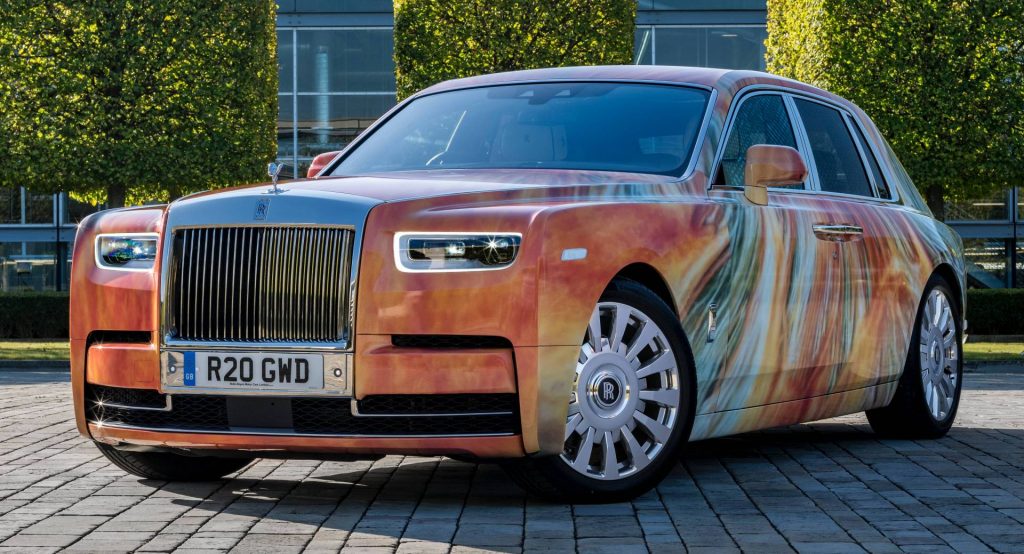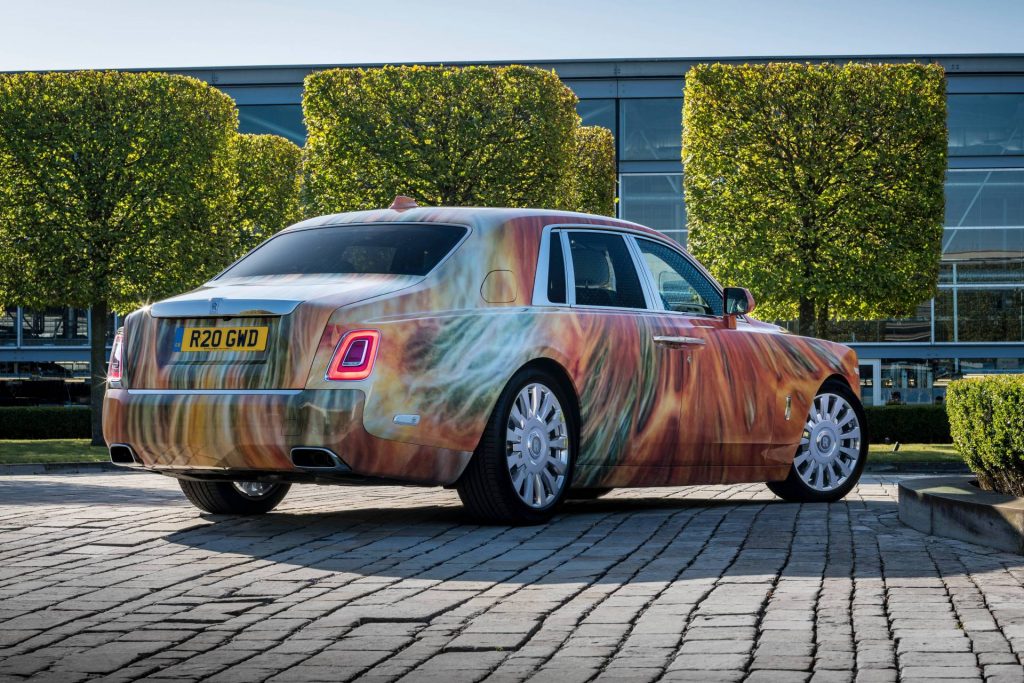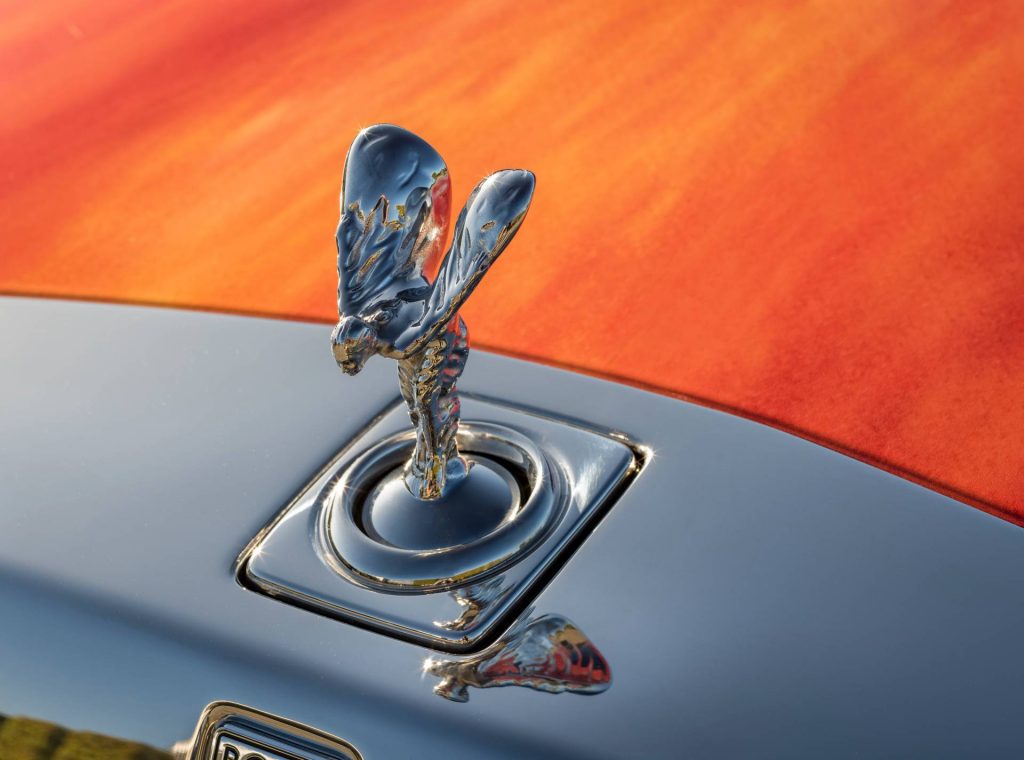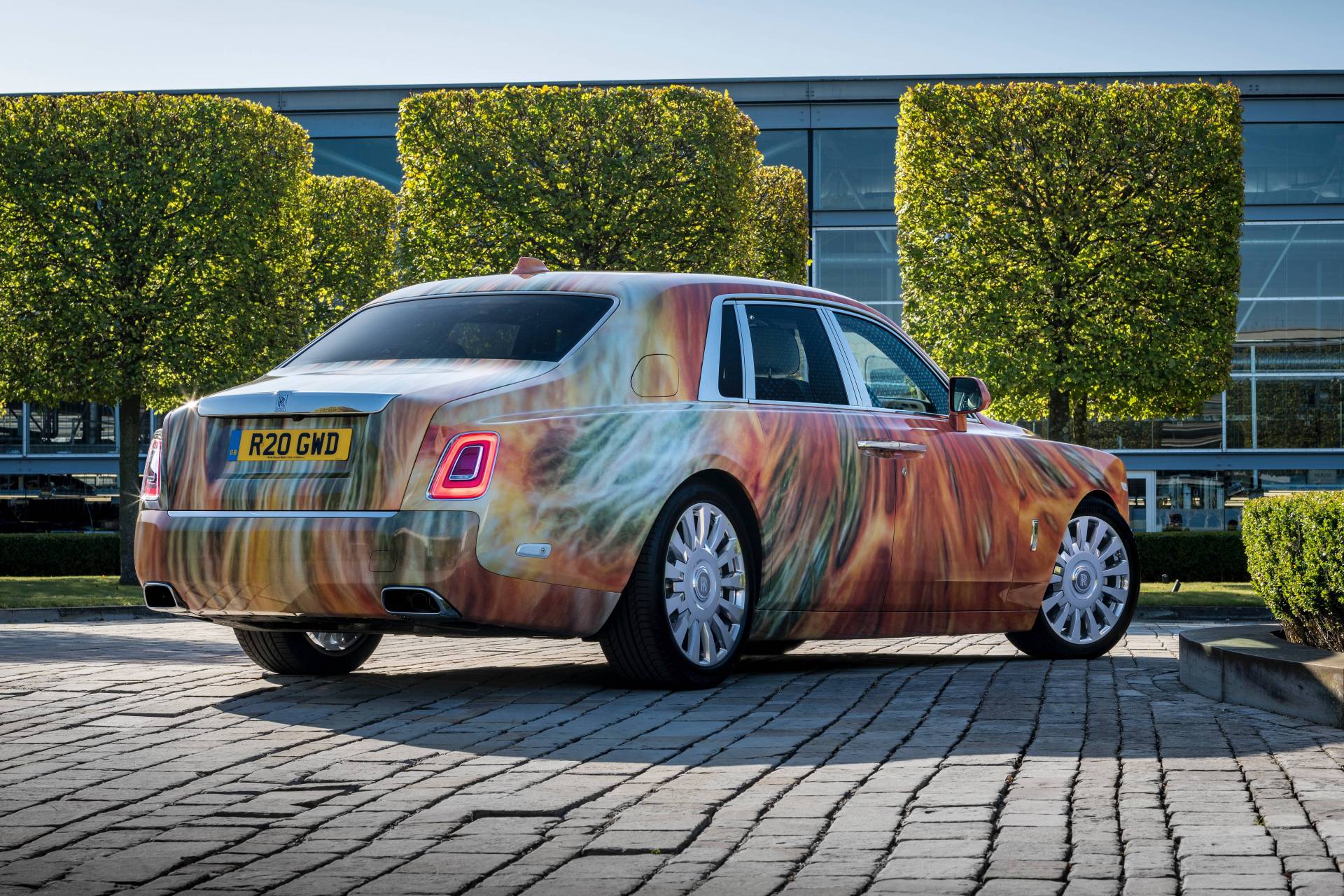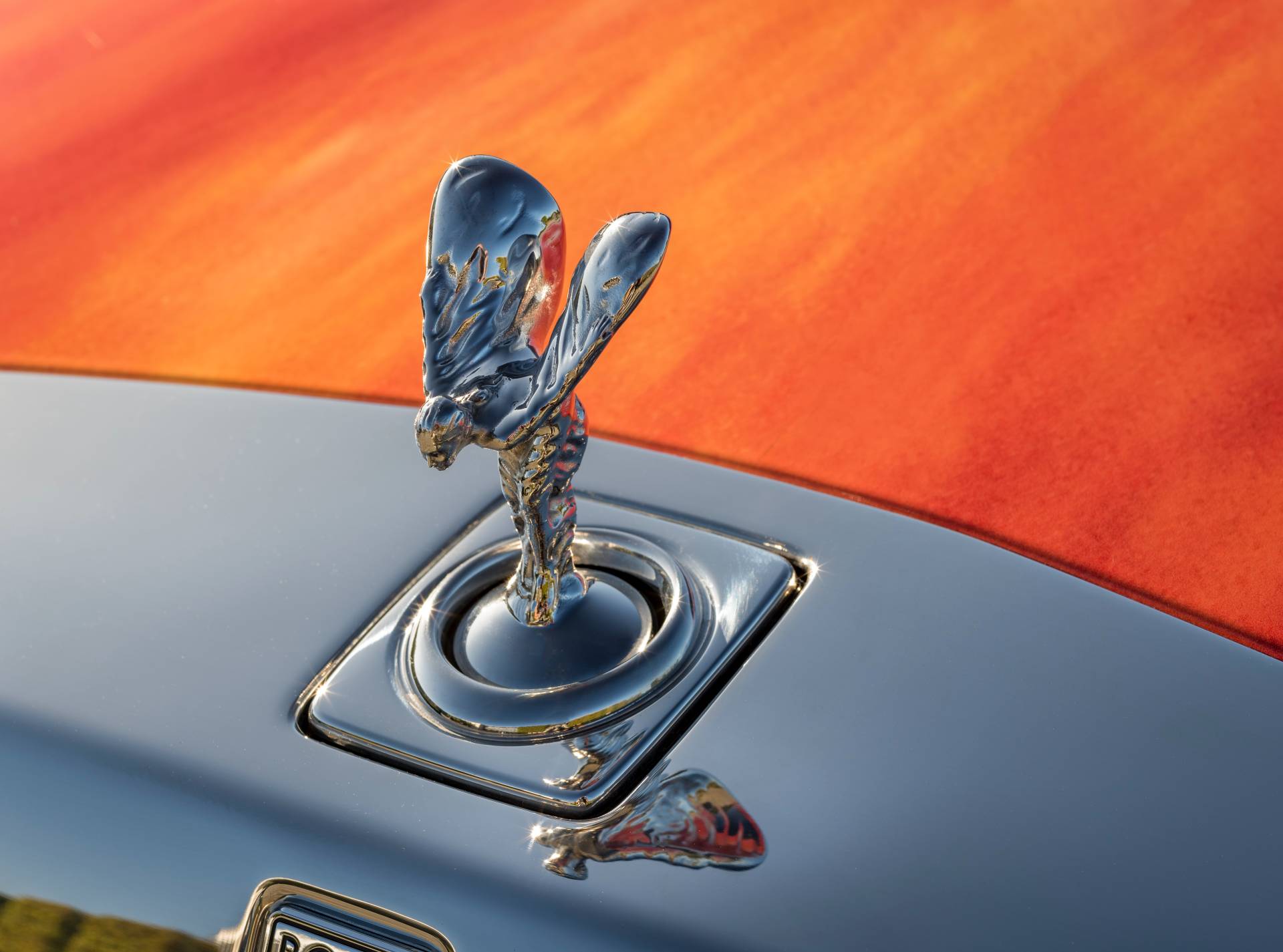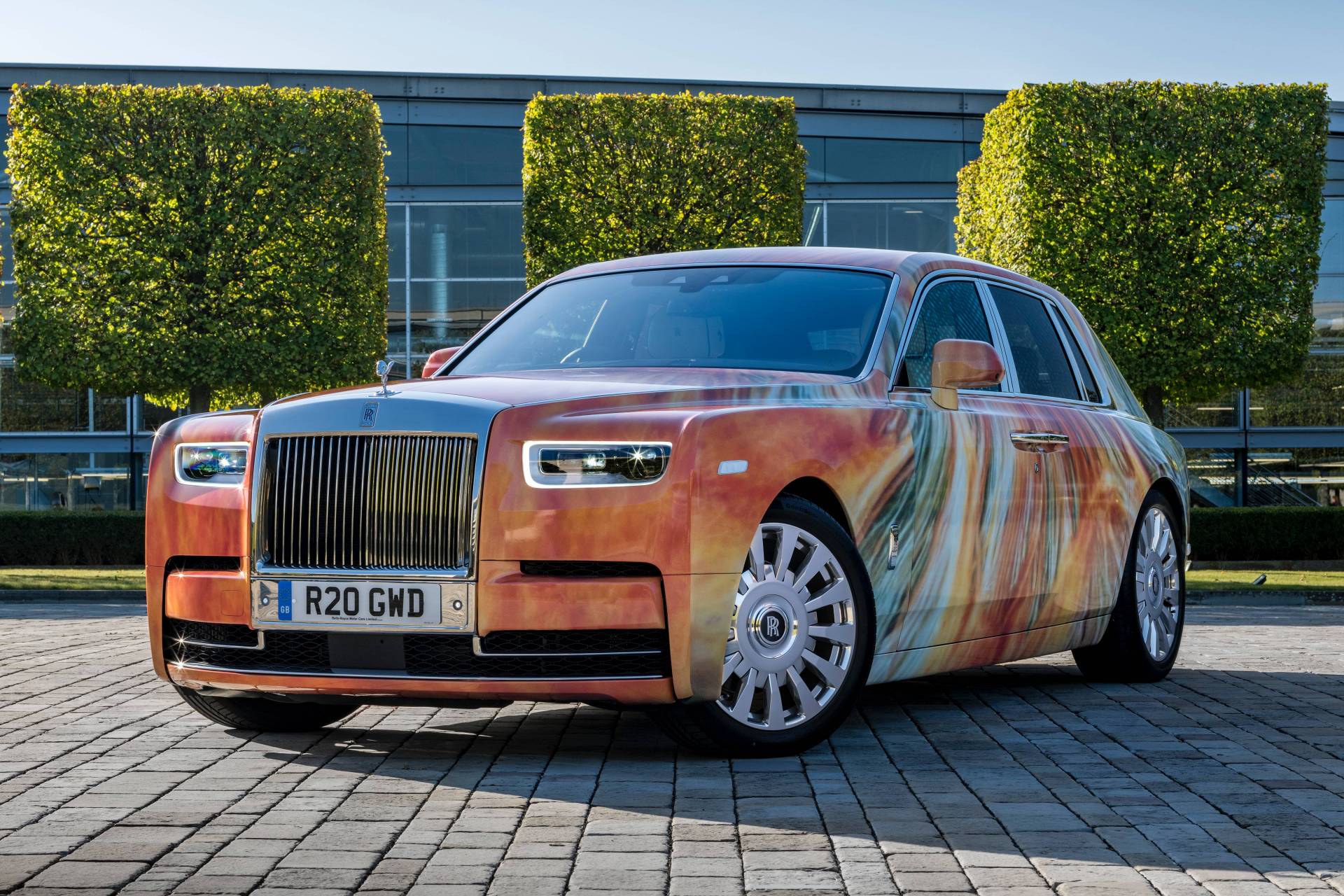A standard-wheelbase Rolls-Royce Phantom starts at around $450,000 in the United States, and that’s before the customer starts thinking about bespoke options.
So what if we told you a Phantom VIII sold for more than double that amount this past weekend at a UK auction, simply because it featured an unusual livery? To be fair, it’s no ordinary painting, as its author is renowned visual artist Marc Quinn.
Described as the 21st century equivalent of John Lennon’s psychedelic Phantom V, the modern Phantom art car was born from the collaboration between Rolls-Royce and the British painter and sculptor. He elevated the new Phantom to an artwork on wheels, with the livery taking inspiration from Quinn’s on-going series of iris paintings, named “We Share Our Chemistry with the Stars.”
Also read: Rolls-Royce Is Making A One-Off Special Phantom For Its 115th Birthday
The car was sold for £888,000 (approximately $1.09 million) as part of a philanthropic event called “Evelina Art for Allergy x Dine on the Line,” hosted by the Home of Rolls-Royce in Goodwood, UK, on September 21. All proceeds from the auction went toward supporting allergy research at Evelina London Children’s Hospital.
The winning bidder of the Phantom art car is not named, but Rolls-Royce says they are “a valued collector of the marque.” The owner will even commission Marc Quinn another Phantom art car, this time featuring the iris of their daughter.
“Rolls-Royce is deeply privileged to have worked with Evelina London on this exceptional event. We are thrilled that Marc Quinn’s artwork, using Phantom as the canvas, raised a fabulous £888,000 and are humbled that nearly £2million was raised in total throughout the evening for this centre of medical excellence in London,” said Rolls-Royce Motor Cars CEO Torsten Müller-Ötvös.
So what should we take away from this, besides the fact that some people are willing to spend fortunes on Rolls-Royce Phantom art cars? Well, the most important thing is that the donations from the auction will be used for a research program “to prevent allergies, to protect against allergies, and to ultimately cure allergies in children,” according to Professor Gideon Lack from Evelina London.



